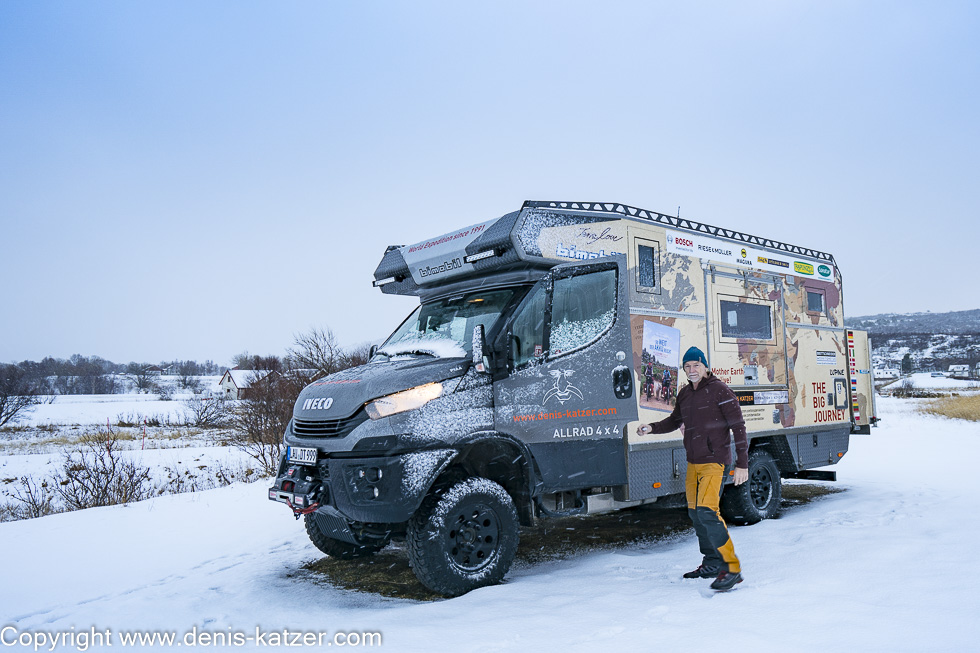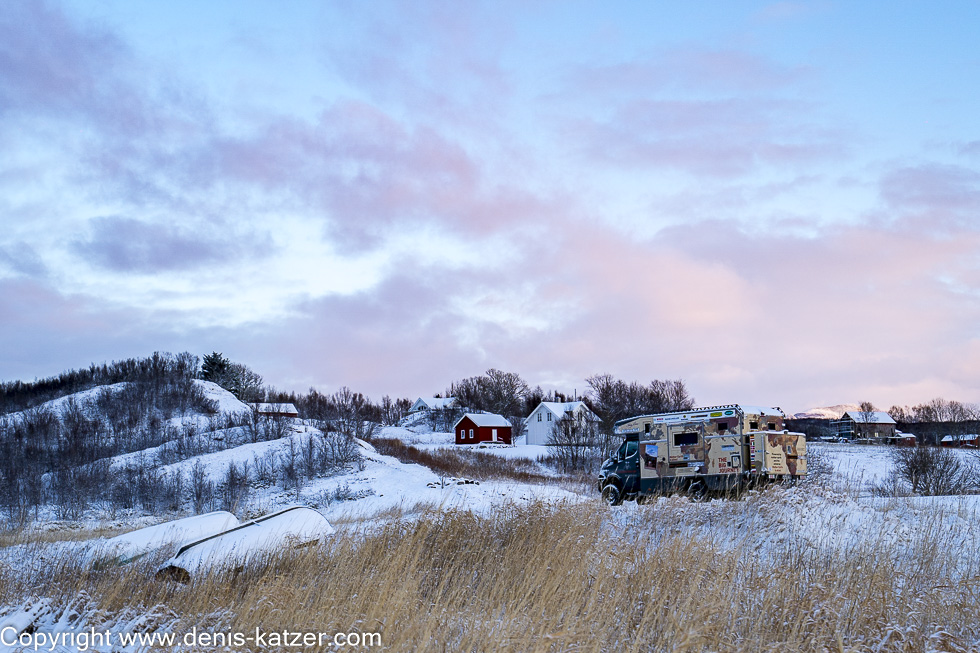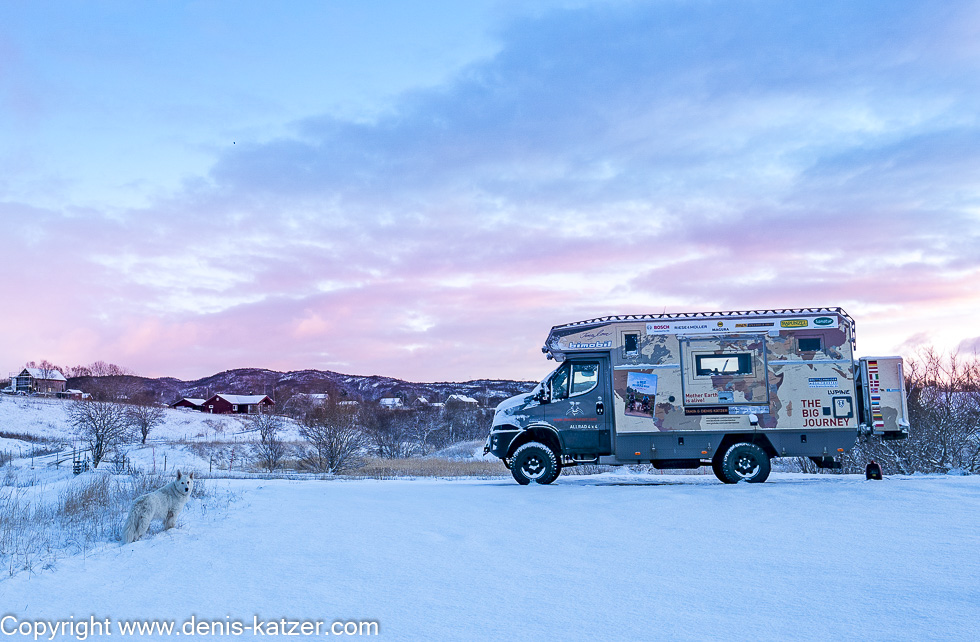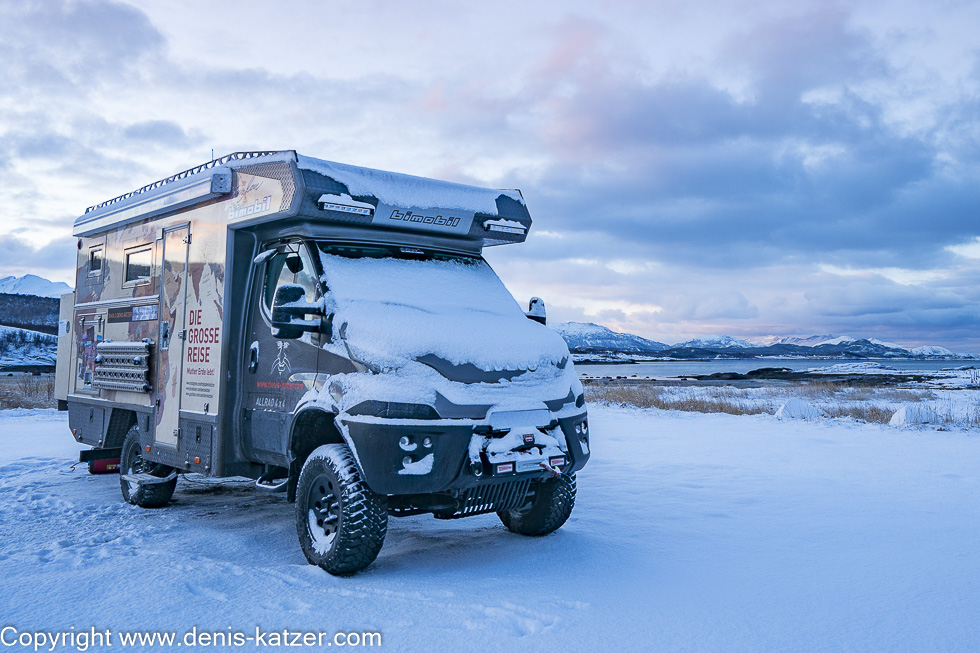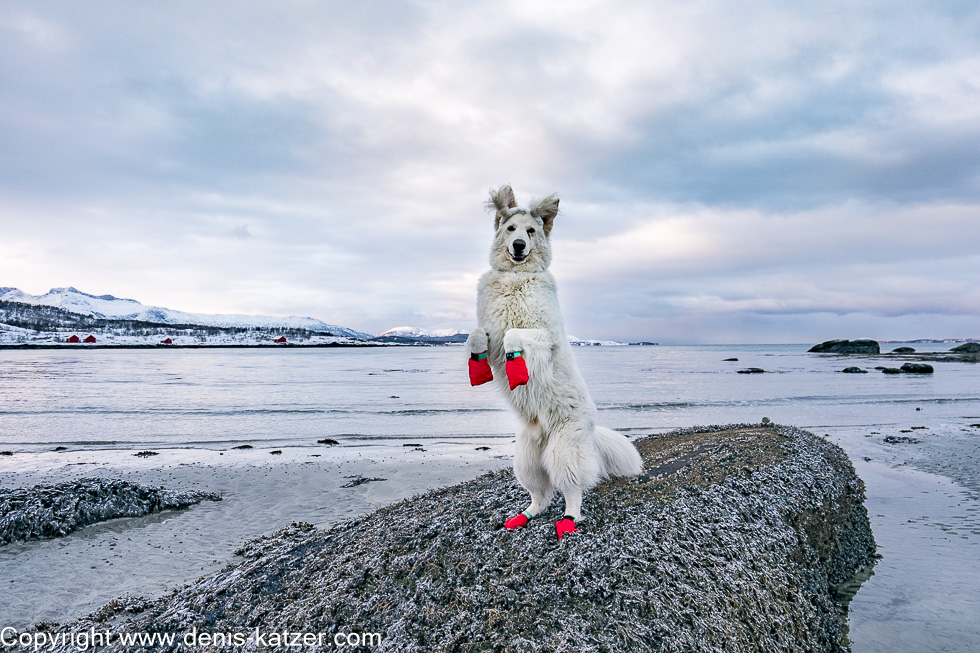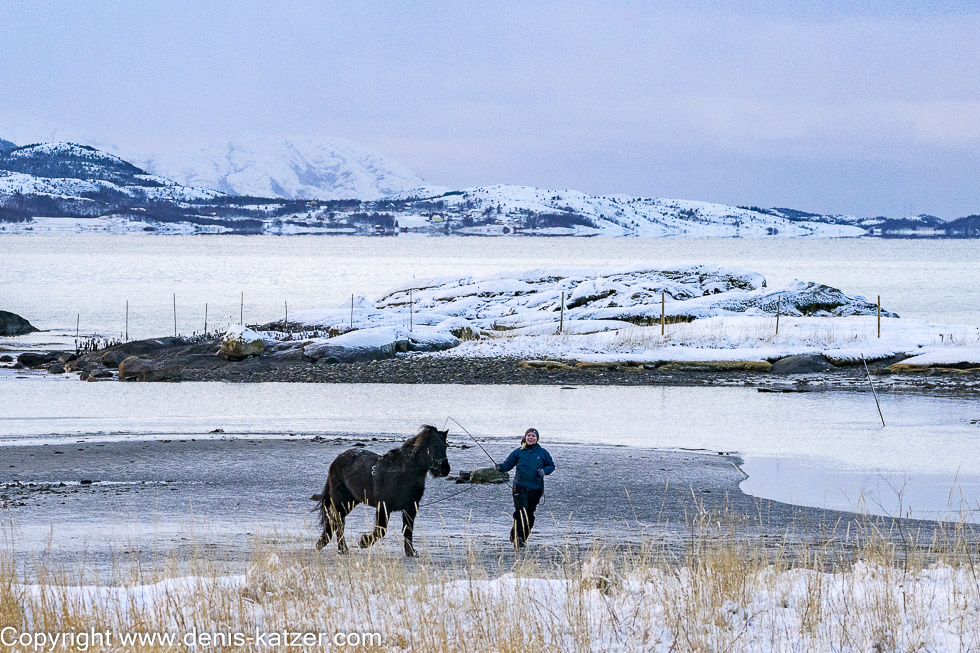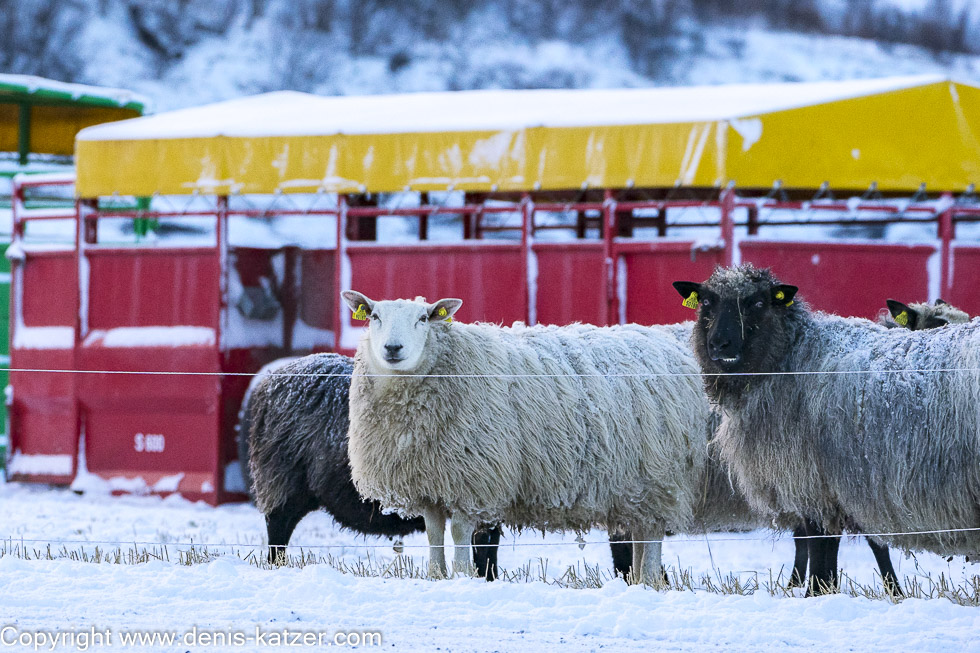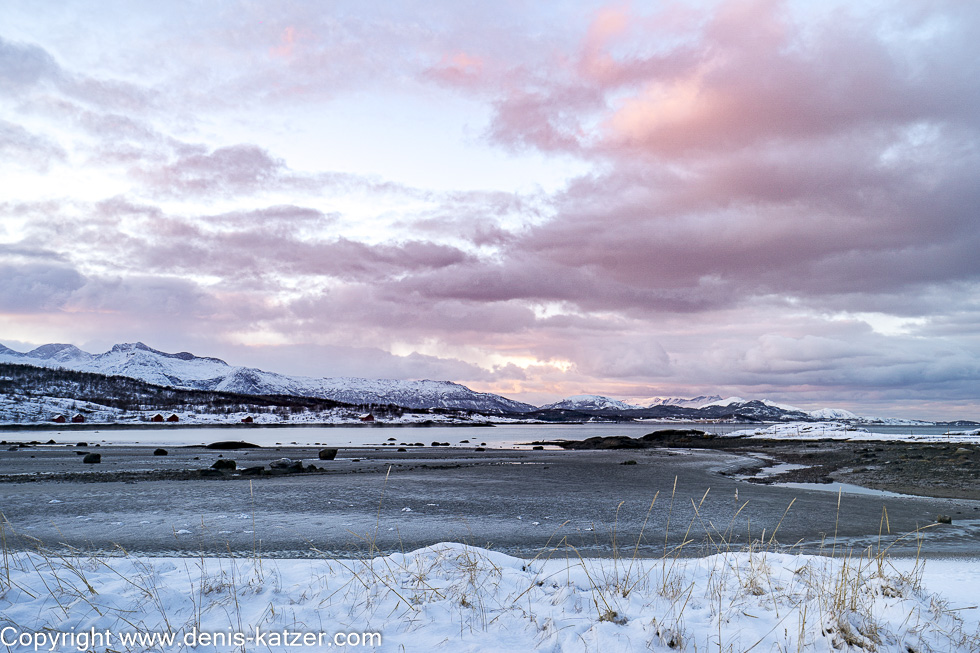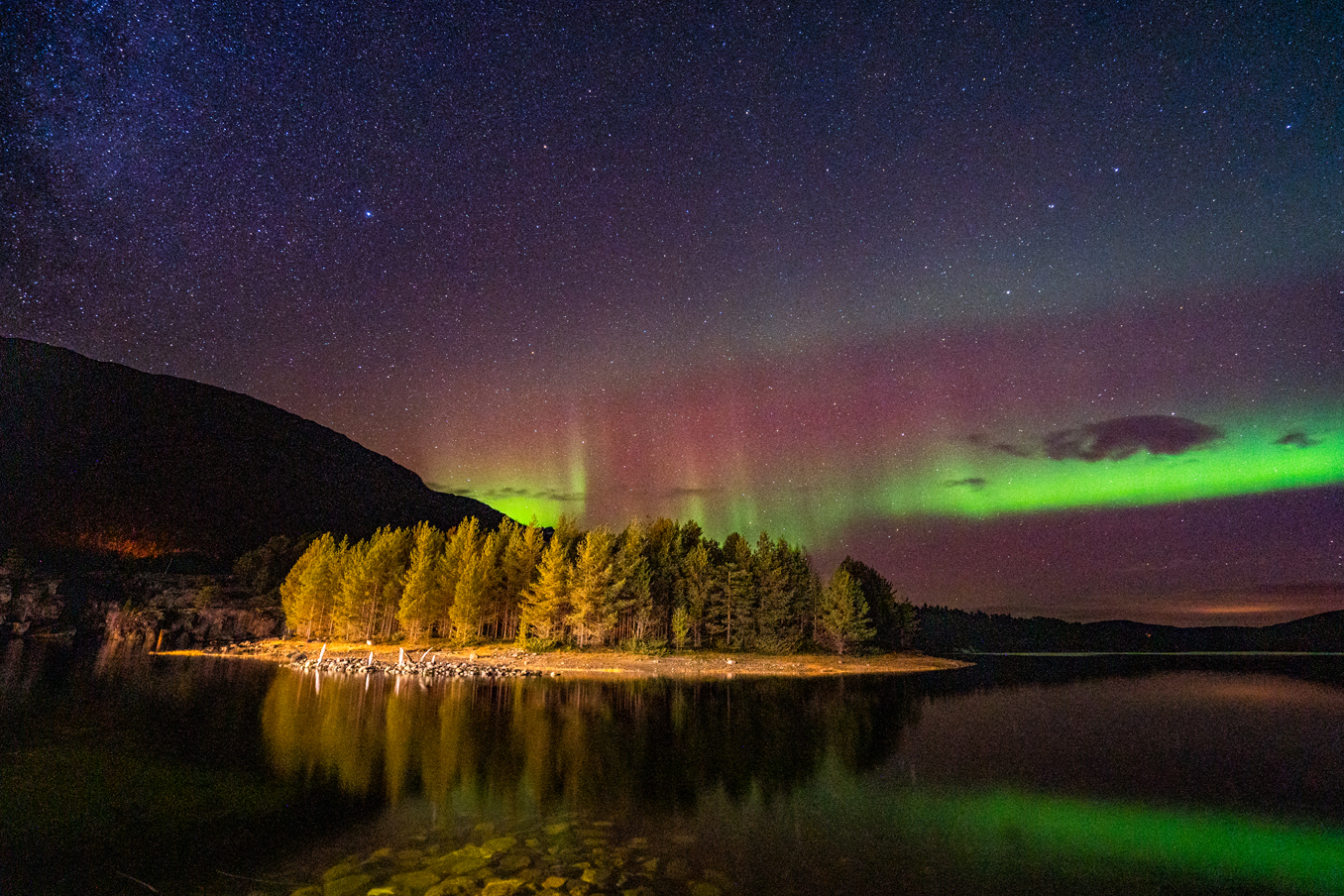
Global warming and rising sea levels
N 67°15'55.9" E 14°43'19.1"
Date:
17.11.2020 until 24.11.2020
Day: 107 – 114
Country:
Norway
Location:
Saltfjorden
Daily kilometers:
48 km
Total kilometers:
8104 km
Soil condition:
Asphalt
Sunrise:
09:07 am to 09:37 am
Sunset:
2:24 p.m. to 1:57 p.m.
Temperature day max:
11° to minus 0°
Night temperature min:
7° to minus 3°
Wind
90 km/h
Time of departure:
11:30 a.m.
Arrival time:
10:00
(Photos of the diary entry can be found at the end of the text).
Click here for the podcasts!
Link to the current itinerary
(For more posts click on one of the flags in the map
Winter has suddenly struck. In the morning, our camp lies under a thick blanket of snow. Ice-cold gusts of wind blow across the fjord at 90 km/h, causing our Terra to sway. As we have already survived gusts of over 120 km/h at Steinfjord on the island of Senja, we are not worried. It is comfortably warm in our cabin, so the uncomfortable weather doesn’t affect us. We decide to stay longer. As we really like the solitude and the idiosyncratic beauty of the place, the days fly by and one night originally planned turns into a whole week. Living in the flow, living according to the feeling, letting ourselves drift and doing what we feel like doing allow us to make such decisions. We use the stay for our documentation work, cook delicious food in the evening and read until midnight. During the few hours of daylight, we observe the constantly changing clouds and the colorful sunrises and sunsets. Tanja and Ajaci go for long walks on the beach several times a day. Depending on the tide, the beach either expands into a huge area or contracts into a narrow strip. On the third day of our stay, we watch a woman training her horse on the beach. She comes from a nearby hamlet. When Tanja starts talking to her, she talks about global warming. “When I was a child, there was at least a meter of snow here at the end of November. Now it’s only a few centimetres and on many days it even rains. As far as I can tell, the sea water level has already risen. It can no longer be denied that humans are having a massive impact on the climate. I really fear for the future of my children.”
On the fourth evening, a campervan thunders onto our pitch. Although there is still space to the left and right of us, it parks right in front of the Terra. The view of the sea is therefore obstructed. “Never mind, he’ll be gone again tomorrow,” I suspect. In fact, he disappeared the next day. The only thing that remains are the plastic and paper scraps from a fast food restaurant, which the wind scatters across the idyllic square. We immediately collect the leftovers to dispose of them later in a garbage can. “It’s terrible,” complains the horsewoman. “In the high season, travelers come here from all over the world. As there is no toilet, they poop all over the area. I can’t take my dog for a walk here at this time of year as he loves these droppings. We in the village have already discussed how we can get this problem under control. We would have to put up a toilet block and a waste container. Both would have to be emptied regularly. However, the question arises as to who should finance this? The owner of this land is already considering banning wild camping. I don’t understand people. Why can’t you leave such a wonderful place the way you found it? Most of the visitors behave carefully and respectfully. It’s the few black sheep that spoil everything. Surely this is one reason why we have to put up more and more traffic and prohibition signs in Norway.”…
